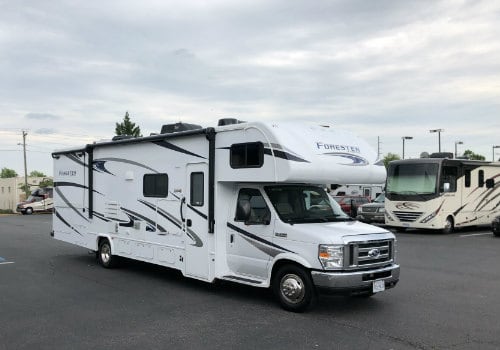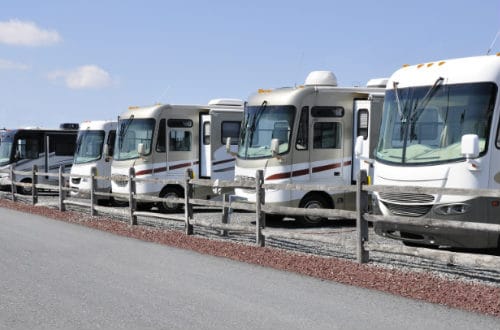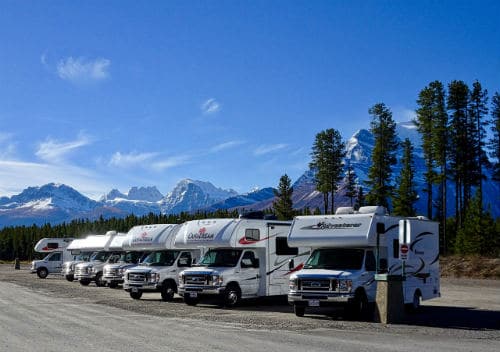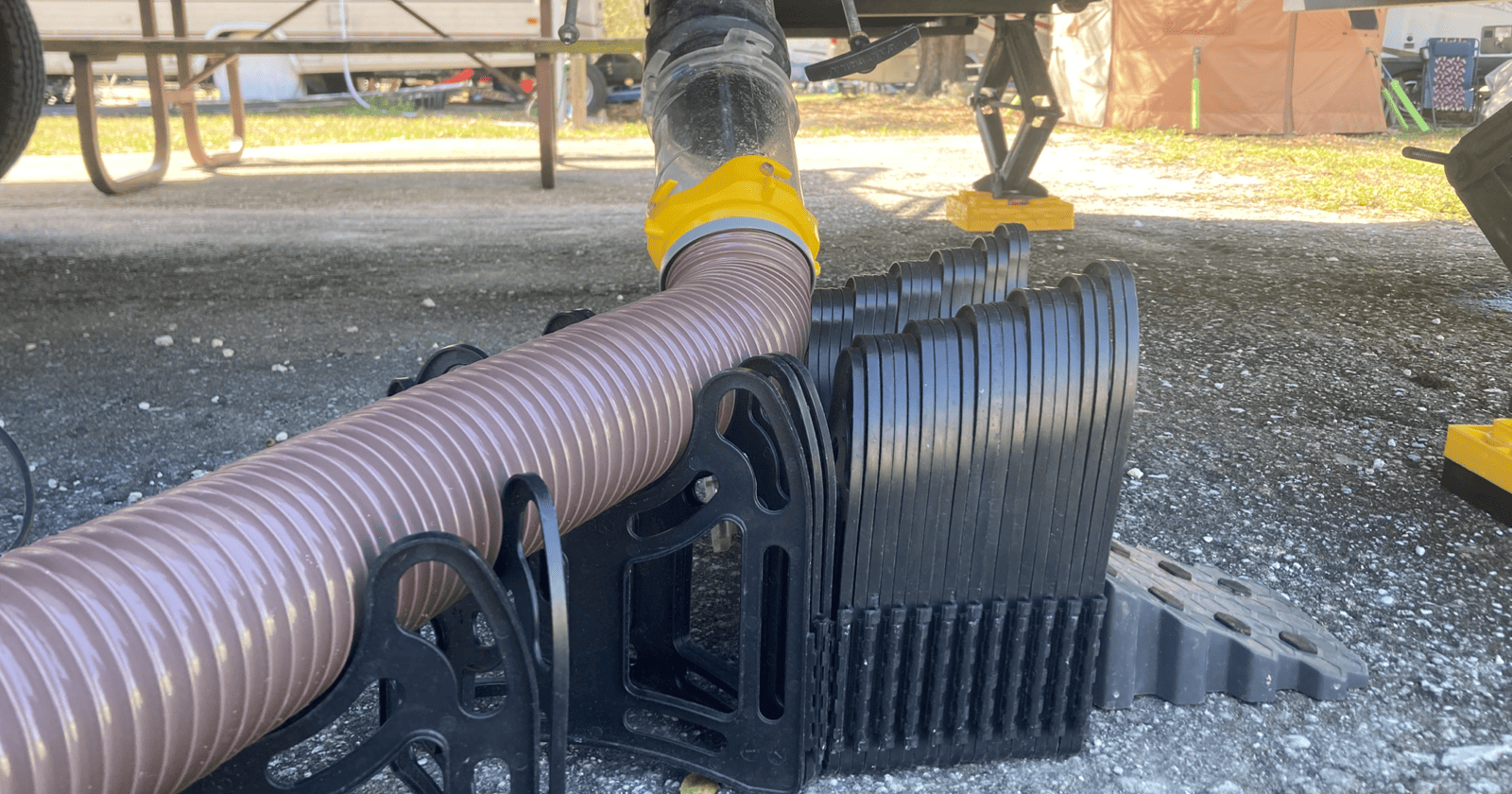I’ve always believed that you don’t need to break the bank just to get a high-quality camper. Don’t sweat about spending over your budget. After some years of experience going around the market for my next trailer, I’ve found some tips and ways to get a good deal when you are buying an RV.
Buying an RV
Is it your first time buying an RV? Or are you upgrading your camper? Whatever adventure you’re trying to take, I know it’s a top priority to stay within the right price range. With campers dealing out in the thousands to tens of thousands, every dollar can count.
When you get an RV or camper, you’ll have to think of a lot of things. Top of your list would be the type of trailer you’d want to get. How many people should your camper fit? Are you looking for five-star camping experience, or would you be happy with the basic amenities?
Once you know what type of camper you want, you can research on the usual price range in the market. Before your heart stops at the huge price tag, reconsider your budget and your goals. With the right tips and tricks, we can get the best deal for you.
Understanding the Travel Trailer Market
Despite years of camping, I’m not a complete expert when it comes to the ins-and-outs of the camper industry. But my research and observations make it easy to see some patterns. For one thing, RVs and campers are usually sold with a much higher profit margin compared to regular vehicles like city vehicles and trucks.
Companies add that big margin to compensate for the decreased sales during non-peak seasons. After all, sales are bound to dip during winter, when no one is really out to camp in the snow. They need to offset that dip. The higher the markup price also reflects the quality of the marketplace. Not all camping enthusiasts are loaded but buying a camper is still a big luxury in most cases. Even millennials buying their first small trailer spend thousands of dollars. Companies expect people to be willing and able to pay more money.
It can be easy to understand the reasoning behind the intimidating price tag of most RVs. Salespeople need to make their living, and companies need to profit to keep developing even better travel trailers. If you’re like me, though, you’d still want to get the best possible deal for your next camper. Getting the best possible deal is a matter of strategy.
10 Ways to Get a Good RV Deal

Without the right know-how, you can end up spending an exorbitant amount for your camper (worse if it doesn’t even have all amenities yet, or even an engine). Many first-time buyers are lured in by bright sale signs and by charismatic salespeople.
Over the years, I found some things which worked for me in getting the best deal possible. I also added some things I heard from friends which sounded helpful in negotiating for a camper. These tips require a bit more work than just going to the best-rated dealership, but I promise it’s worth the effort.
- Try out the camper
- Shop nationwide
- Time your negotiations
- Consider buying a used trailer
- Look at different brands
- Compare finance rates
- Know your numbers
- Openly compare dealerships offers
- Check for hidden charges and incentives
- Come back again
Now let’s discuss in more detail each of the above categories.
#1 – Try Out the RV
This tip is more for new adventurers looking to buy their first RV. Buying an RV or camper is a big financial investment. Dropping thousands of dollars on a camper you won’t enjoy is a recipe for regret. Renting the camper you’re eyeing is one way to try out the merchandise before you try.
If you can’t find the specific model you’ve been eyeing to buy, renting out a camper is still an excellent way to get a feel for what amenities you can live with and what you absolutely can’t live without. How much space do you need? Are you looking for a full kitchen or just a sleeping space? Do you need plenty of windows or storage? When you’re shopping for options or negotiating for a deal, you can use your knowledge and preferences as leverage.
While this tip doesn’t help you drive down the price or look for the cheapest option, it does help you get more value for money. There’s no point in buying the biggest, latest and most affordable camper if it’s not the right fit for you.
If you don’t want to spend time on a rental, just make sure you take out your camper for a test drive before sealing the deal.
#2 – Shop Nationwide

Cast a bigger net! You can try buying the cheapest RV in any of the dealerships within your state, but you can probably still find a more affordable option for sale down in the south. In Indiana, for example, I found my RV priced at a reasonable $2,000 less.
Dealing with travel trailers is expensive. Freight and shipping costs add up to a lot of expenses for dealerships, which is why the listings in your area may be more expensive than the listings in the south. The large size, heavy weight, and difficulty in handling all contribute to the freight costs shouldered by the dealership (and passed down to your wallet). Plus, southern dealerships often sell year-round, so the margin for sales isn’t as high.
There are hundreds of RV dealers in the country.
To get the best deal, you need to make an effort to search through their catalogs. Once you find a camper model you like, check if it’s listed for a better price elsewhere. You can find dealers through online listings.
#3 – Time Your Negotiations
Buying at the right place and time can do wonders for your negotiations. Like any business involved in sales, dealerships and RV manufacturers have cycles and deadlines to meet. If you start negotiations at a time when they need to move inventory, you might just get a better deal.
For example, I noticed that most people get a better deal during the last day of a trade show versus the first day. RV dealers are there to sell their campers; most of them don’t want the added risk and cost of towing back unsold units. If you want to try this out, you can spend the first half of a trade show going around to scout prices and noting your preferred models. On the last day of the show, grab the camper on your list that’s still available. You only run the risk of the unit getting sold out before the last day.
Another way you can try this out is to buy an RV near the end of a sales period. Most salespeople and dealerships have sales quotas to meet on a monthly or yearly basis. If you negotiate well, you can use this angle to leverage for a better deal. Try shopping around before winter.
#4 – Consider Buying a Used Trailer
There are a lot of used trailers and campers in the market. Before you go waving them away, think about the value you get and how much money you can save. A lot of the things you’re looking for might already be in lightly used and older models. Also, buying a new model does not necessarily mean getting a better deal when it comes to long-term maintenance and issues.
Unlike regular cars, RVs and campers can have a much shorter turnover time. RV sales have been booming in the last couple of years so you can expect a very strong and dynamic market. People can buy bigger campers when they have more kids or more money, or trade-in for a smaller one when the kids leave home. Keen luxury adventurers are constantly trading up for the latest model. The growth of the tiny home industry also means more people are in the market for trade.
Whatever the reason for selling, you’ll find plenty of good quality options on trading websites, social media and Craigslist, and local dealerships. If you spend less money upfront, you also set aside more money for future upgrades and personalized features. In fact, buying an older model and fixing it up is becoming a popular trend in the community. You can gradually add more features as time goes by.
#5 – Look at Different Brands
I’ve seen people profess loyalty to the same dealership and to the same brand for years. Loyalty to a dealership can net you some points in negotiations, but as I’ve mentioned, you might be missing out on a lot of good options elsewhere. The same goes for brand loyalty.
When it comes down to it, all RVs and campers are built to serve the same function. For a price, these recreational vehicles are meant to give your camping experience an added measure of comfort. If you’re too focused on a brand you’ve previously tried or recommended to you by a friend, you can miss better deals with similar models.
Check out similar RV and camper models to the one you’re leaning on. There might be a more affordable version with even better reviews.
#6 – Compare Finance Rates

Financing your RV or camper is a bit similar to financing your next car, as the loan rates tend to mirror each other. The finance rates also depend on current market trends. As with any significant investment, you need to watch these finance rates and compare your options.
The tip to getting a good deal via financing is to get clear quotes from your bank, credit union or dealer before committing to any one option.
Your favorite RV dealer may be offering financing which sounds reasonable and practical. Don’t be too hasty in accepting financing, because you might be able to get a better rate from your credit union or bank. You can then use the differences in rates to leverage a better deal from your RV or camper dealership.
In my experience, the dealer can almost always offer better financing compared to third-party institutions. While banks can offer cheaper rates, dealers can package financing with the rest of the sale. Dealers can offer more attractive promotions and specials, such as dramatic price cuts or zero percent APRs for a year.
#7 – Know Your Numbers
Most salespeople I’ve met are sharp when it comes to picking out new buyers from old hands. When you get to a dealership or trade show, don’t fall for the big and flashy “sale” stickers plastered over the camper’s windshield. These dealers are luring in customers who don’t know the actual market value of the RV or camper. If you accept the incredibly high initial markup price, you’re setting yourself up for a bad deal.
To negotiate confidently, you should do your research. Comparing prices online and knowing the actual market price of similar models will give you an edge. If the salesperson sees that you know what you’re talking about, they’re much more likely to provide you with a good deal.
Dealerships can get away with high markups only if you let them. If you come in and take a risk with a low offer, you can work your way to a good compromise for the price.
#8 – Openly Compare Dealerships Offers
When it comes to the fate of thousands of dollars, there’s not much room to be subtle or shy in negotiations. Comparing dealership offers can give you more leverage to negotiate for a lower price.
The ideal model I wanted was priced at $30000 at one of the dealerships I went to (spoiler: I got it down to $25000). Later on, I found a very similar RV in another dealership with the exact same floor plan and amenities; the only thing different was the brand and the cheaper cost at $24300.
I was already thinking of buying the cheaper option, but I had a relationship with the first dealership, and I was really eyeing that model. I wrote down everything about the cheaper model, from specs to details of the sale, and I brought it to the more expensive dealership. I wasn’t expecting a drastic change, to be honest. But after some negotiation, they actually agreed to drop their price!
It wasn’t a perfect match down to the price, but my leverage got me enough of a discount that I got the model I really wanted.
#9 – Check for Hidden Charges and Incentives
At a glance, a $23000 RV from one dealership is objectively better than the $25000 RV from another. If you look closely, however, you might be missing out on add-ons which provide more value for the more expensive model. The more expensive dealership might actually be offering free storage for one year, or even yearly winterizing or other maintenance services (which will definitely lead to long-term savings).
On the other hand, the supposedly cheaper model might actually come with an unexpected $500 freight fee and another $250 processing fee.
Before you compare base prices, you have to make sure that you’re comparing the same features, add-ons, and services. Will the dealership include the necessary batteries? Is sales tax included in the price already? Do you need to shell out more money for a spare tire?
Once you clear out these hidden charges and incentives, you can protect yourself from making a deal which only looks good on paper.
#10 – Come Back Again
You should never feel pressured to take a “good” deal that’s presented to you. There will always be a chance to get a similar deal, or an even better one. It’s important to never buy during your first visit. Walking away from the dealership can give you the time to rethink your purchase.
Salespeople know that getting you to buy on your first visit is a good thing for their bottom line. Customers are more likely to be acting based on impulse so the deal can be skewed. They’ll make you feel like you absolutely need to have this RV, with a few reasonably useless incentives like sunglasses or a cap.
When you enter a dealership, make it clear that you’re there to compare models and prices. It changes the tone of the interaction. You get to control the direction of the negotiations because the salesperson will now try to give you the most competitive and affordable deal.
Aside from helping out in negotiations, coming back again and going around helps you choose the best possible RV/camper. It can take many visits before you finally settle on what you should spend your hard-earned money on.
Final Thoughts on Buying an RV
Are you ready to buy your RV or camper? With such a big financial investment, always remember to do your research about the model, the pricing, and the incentives. As long as you know your numbers, you can confidently compare the deals made by different dealerships and brands.
Aside from comparing between offers, getting a good deal also requires smart financing and strong negotiations. Compare dealerships and revisit your options. Never be afraid to start as low as possible to get the best price. Having leverage means having the power to ask for more.
If you have any more tips for getting a good deal, share it to the rest of us! I also want to know how these tips work out for you. Will you be buying a new RV or a used camper? Do you think buying an RV shipped or driven from a different state is worth the savings? Will you ever change RV brands? Tell me in the comments below!




